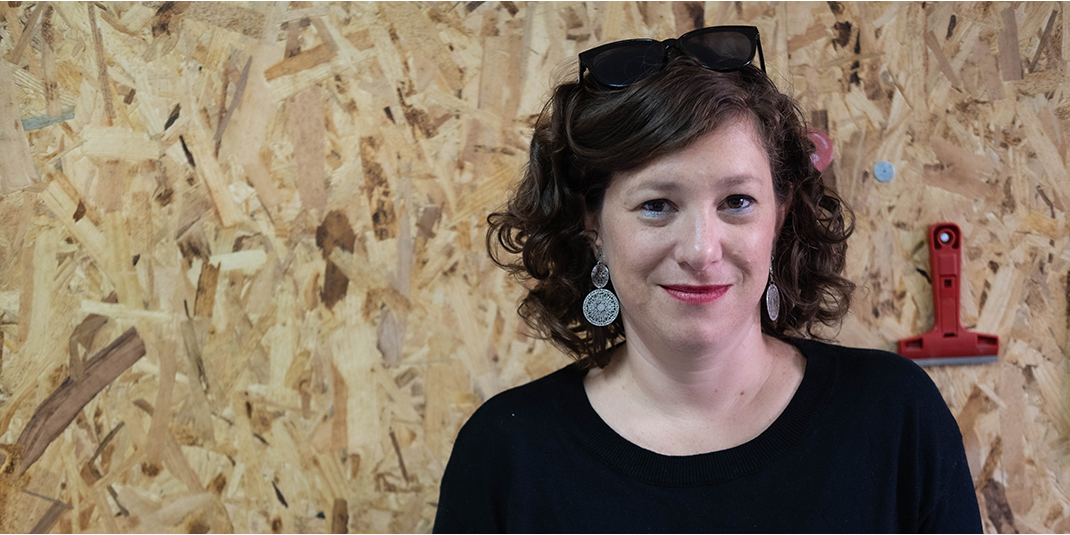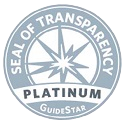Meet Efrat Meyer

Meet Efrat Meyer, principal of the Jerusalem Hand in Hand school. Efrat has been part of Hand in Hand for over 14 years, as an art teacher, community organizer, and now principal.
Introduce yourself, how you came to Hand in Hand and what’s your role at the school.
Efrat: My name is Efrat Meyer, I moved to Jerusalem 14 years ago to work at Hand in Hand. I started as an art teacher in the elementary school, and then I moved into the position of community organizer. After 4 years I went to the high school to teach art; I started the art program there. And after 5 years I became the principal, and this is my first year as principal. Throughout my life I was always socially involved, I studied political science in university and I was attracted to the ideas of social change and being politically involved. And after living most of my 20s in the London and US I came back to Israel and I looked for a place to work as a teacher and I heard about this school and applied. What’s different about this place is that it doesn’t just talk about social change, it creates social change, by changing the school itself. There’s a lot of space for teachers to come up with their own ideas and write their own curriculum.
How has the school changed since you came here 14 years ago?
Efrat: A lot of the change I’ve seen in the last 13 years have happened because of the teachers and its important to keep that in mind as principal. The space and support of teachers to create their own, and make their own dreams come true, and I think that’s something special about this place. It’s part of the idea of social change. If you have no ability to change anything within your work place how could you talk to kids about changing bigger things in society?
What do you see at Hand in Hand that you wouldn’t see at other schools as a principal?
When there’s severe violence around us, whether it’s in Jerusalem or Gaza, when it erupts around us, this is when people want to know about what are we doing at Hand in Hand. They ask, “How do you deal with it?” And actually we deal with it quite amazingly. We are very skillful in listening to the other and understanding each one comes from a different position, and each one has the ability to know that the other person is listening. And I think that most of the people around me are feeling very good to be in the school during the very difficult days. But I think that the big moments of Hand in Hand are the small moments, are the friendships between the kids, when kids stop seeing each other as just an Arab or a Jew, but as a person. And that happens everyday here at Hand in Hand. I remember so many times I met so many kids who are very articulate about the political conflict and are able to talk very nicely about their identity and about the differences and about the future, but what I’m really inspired by are those moments when people are not necessarily ignoring the differences, but are able to create day to day life next to each other as people. I see it in the field trips we have when kids are just waking up in the morning and brush their teeth, and they’re doing something very normal, and you look at them and you think “Wow that’s quite amazing this is so rare in Israeli society, to see Arabs and Jews, people of different religions with different languages and different cultures, coming together and just being people next to each other.”
How does art play a role in bilingual education and shared society?
I think that art for everyone in every school is a space where one can investigate his or her own self and express it visually or artistically. This is something that a lot of people are not doing so it’s a privilege to teach art and ask big questions about society but also about oneself. I think that this school celebrates identities, and the differences, and the ability to criticize your society in a safe place, and in a respectful way. The kids are expressing very deep and thoughtful ideas and questions about their own society, about the conflict, about the positions in the conflict. And I think this is a very important investigation for a 17, 18 year old student- to be able to explore deeply or even be able to say one thing that is important to them. It’s big, it’s especially important in times when things are passing after 15 seconds. Social media apps are about disappearing after a minute, you don’t take responsibility for what you say because it’s going to be gone in 20 seconds, and you can produce more and more without any quality. And then the art program offers them a different opportunity, to say something that will stay forever, or for at least a long time that they stand behind their position, and they have to defend their position.
How is your own personal circle influenced by the work you do?
My friends and family are being exposed to the Arab culture and the Palestinian narrative through me, and these are things that were not so explained to us. They don’t all agree with what I do, but it’s okay, I came to this school being okay to disagree with people. But it’s okay, they’re still proud of what I do here, with the teachers and students, about our attempt to create a better school system with moral and social values. It’s a big task.
What do you hope for Hand in Hand moving forward?
I think what I want to see mostly is youth that is trying to do the best they can in many ways. It’s not just academically, but also socially and personally. The idea of being very good at something, then you take this ability to really pursue your abilities to the highest possible place; and if you have that, you can do it in many fields, in your work place in your community. And you’re going to be a good person because you have the ability to choose very well between good and bad. And I want them to feel hope and strength that things can change for their communities and for themselves. And they’ll be part of that change. I want them to be active, and activeness comes only from when you feel there’s a real chance for change and maybe this school is a model for that.









